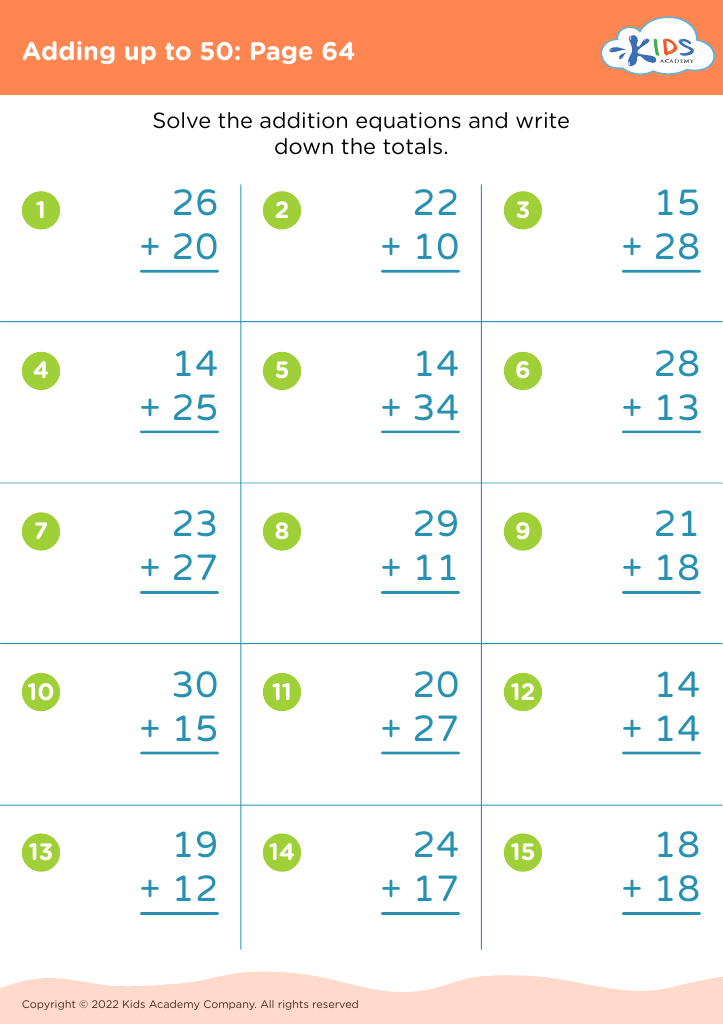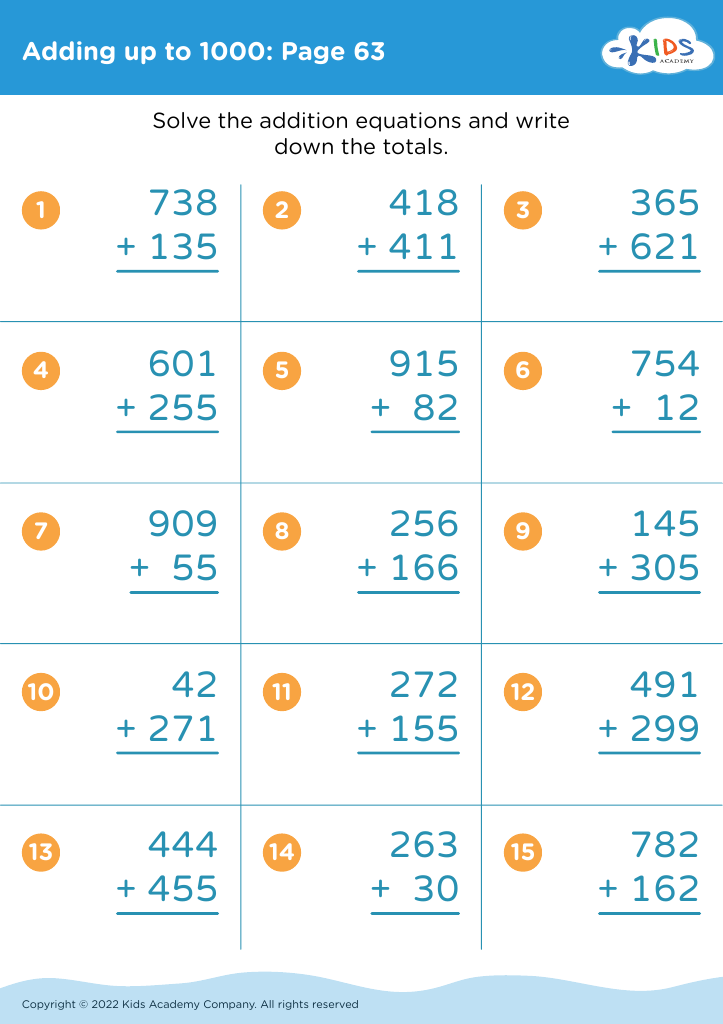Comparing numbers Addition Worksheets for Ages 3-8
4 filtered results
-
From - To
Explore our engaging "Comparing Numbers Addition Worksheets" for children aged 3 to 8, designed to make math fun and interactive! These worksheets focus on helping young learners understand the concepts of greater than, less than, and equal to, all while practicing addition skills. With vibrant illustrations and age-appropriate exercises, your little ones will enhance their number sense, boost their confidence, and reinforce essential math skills. Whether at home or in the classroom, our printable resources provide endless opportunities for learning while playing. Start your child's math journey today with our captivating worksheets that encourage creativity and critical thinking!
Teaching children to compare numbers through addition is a fundamental skill that fosters critical thinking and mathematical fluency. For parents and teachers working with ages 3-8, understanding the importance of this concept is paramount.
Firstly, comparing numbers helps children develop a strong number sense, allowing them to grasp not just quantity, but also the relationships between numbers. This foundational understanding is crucial for everyday problem-solving, from figuring out how many cookies are left after snack time to understanding quantities in more complex scenarios later in life.
Additionally, mastering comparisons lays the groundwork for more advanced mathematical principles, such as greater than, less than, and equivalence, which are essential in understanding algebra and calculus later on. Engaging children in fun activities and games that involve comparing sums can enhance their learning experience, making it enjoyable and interactive.
Moreover, this skill promotes social interaction and communication when children discuss their reasoning and share strategies with peers or adults, enhancing both their social and cognitive development. Therefore, investing time in teaching comparing through addition at a young age not only builds a solid mathematical foundation but also equips children with essential life skills. Parents and teachers play a crucial role in this developmental stage, shaping confident Learners ready for future challenges.

























